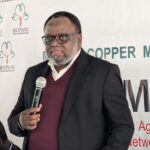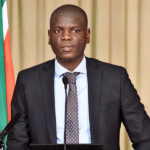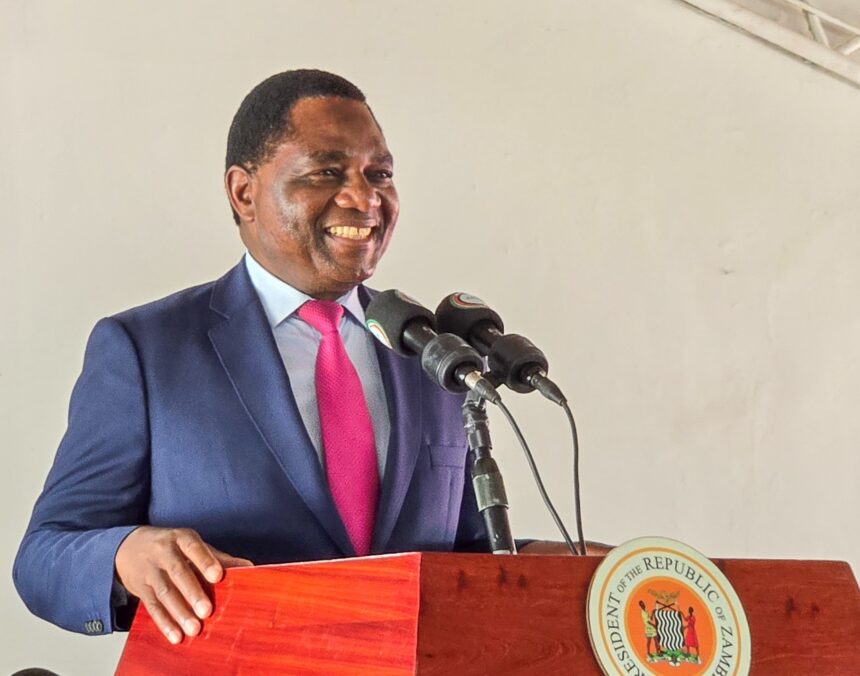President Hakainde Hichilema has reiterated the vital role of the church in Zambia’s national development, urging faith-based institutions to broaden their influence beyond spiritual matters and become active agents in building stronger, more resilient communities.
Speaking at a worship service organized by the Brethren in Christ Church at Choma Secondary School grounds, President Hichilema commended the longstanding contributions of churches in Zambia’s health and education sectors. He noted that the church has historically stepped in during critical times when public infrastructure and resources were limited.
“The church has always been there when our people needed support—when the country lacked enough schools, clinics, or even food,” President Hichilema said.
The President emphasized that the government alone cannot achieve all of its developmental goals, pointing to the need for trusted, value-driven partners to collaborate in uplifting communities. “We are in a collective struggle to uplift the lives of every Zambian. That struggle requires unity, shared values, and trusted partners—and the church remains one of those partners,” he stated.
President Hichilema also challenged churches to explore their potential in agriculture, especially in supporting national food security efforts. He encouraged churches to use their land and community networks to produce surplus food, particularly for rural regions affected by erratic weather patterns and drought. “Our food systems need resilience, and the church has land, community reach, and moral authority. You can help feed the nation, literally and spiritually,” he urged.
This call comes amid growing recognition of the church’s capacity to address not only spiritual needs but also social and economic challenges at the grassroots level. Churches in Zambia have long been central to the country’s development journey, especially in underserved areas where mission-run schools and hospitals often provide the most reliable services. These institutions remain some of the most trusted by local communities.
President Hichilema’s comments reflect a broader shift toward inclusive development strategies that embrace partnerships with civil society, including religious organizations. During the same event, he took time to speak directly to students, urging them to remain focused, disciplined, and hopeful. “The country is changing,” he said. “And it will need sharp minds, strong hearts, and bold souls to keep it moving forward.”
Observers have noted that the President’s engagement with the church may also carry political significance. In a nation where religious institutions command considerable influence, especially in shaping public sentiment, such partnerships can bolster government legitimacy and community trust.
However, analysts see the renewed collaboration as a constructive development. Development strategist Dr. Twaambo Zulu observed, “The President’s tone was pragmatic. He sees the church as a delivery partner, not just a moral voice. That signals a shift toward multi-sectoral development thinking.”
Leaders within the church welcomed the President’s call to action. A senior pastor from the Brethren in Christ Church affirmed their readiness to support national goals, provided their independence and values are upheld. “We are ready to work with government, as long as our voice remains free and our efforts are respected,” the pastor said.
With general elections on the horizon and the country still navigating the effects of global economic shocks, such collaborations between the state and the church may prove essential in driving sustainable progress and fostering national unity.






